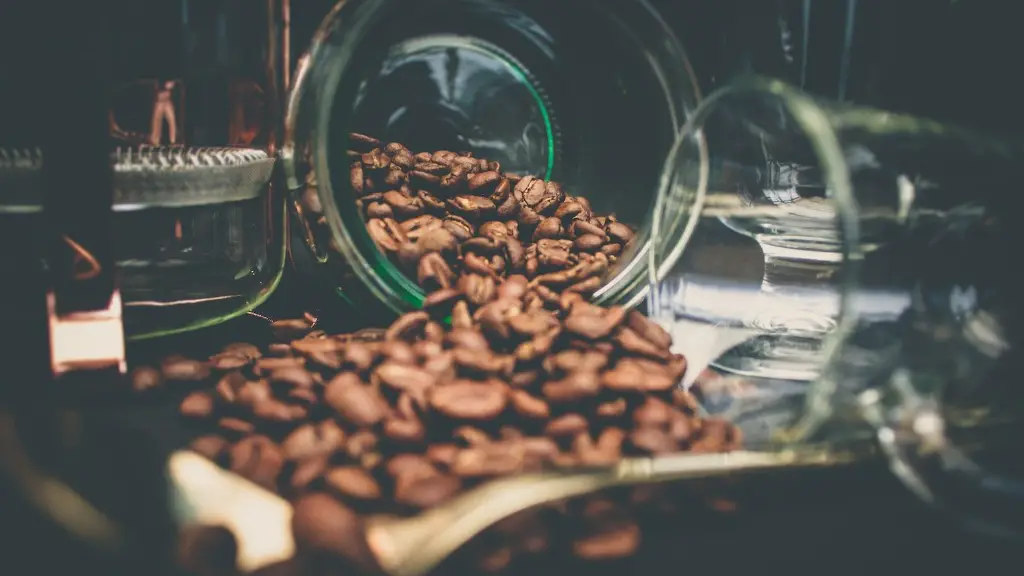Background Information
Pregnancy is an incredibly exciting time in a woman’s life, with many changes presenting themselves as the body adjusts to its new developments. A major concern during pregnancy are the foods and drinks a mother-to-be should be consuming, with many turning to coffee to satisfy their cravings. But is this a safe option during pregnancy?
Coffee, particularly espresso, contains the stimulant known as caffeine which is considered hazardous to pregnant women in large amounts, and can affect the unborn child. Caffeine is actually the most widely consumed drug in the world, as it can be found in many forms – chocolate, energy drinks, tea and coffee, as well as a variety of medications.
Relevant Data and Perspectives from Experts
Various studies have been conducted to measure the level of safety of coffee in pregnancy. The World Health Organisation (WHO) and the National Institutes of Health (NIH) suggest pregnant women should try to limit their caffeine intake to less than 200mg a day, which is equivalent to around two cups of coffee.
A 2019 study by the University of North Carolina’s Department of Nutrition found that pregnant women drinking more than 200mg of caffeine each day were at a greater risk of premature birth or having a low birth-weight baby. Another study by the Journal of Obstetrics and Gynecology also confirms this figure, and states that mothers who consume greater than 200mg of caffeine (an equivalent of 2-3 cups of coffee) are associated with a greater risk of birth defects and stillbirth.
Analysis and Insights
The majority of the research suggests that consuming small amounts of caffeine in pregnancy is not harmful, so long as it is kept to moderate amounts. The WHO and NIH guidelines recommend expecting mothers to keep their intake of caffeine to under 200mg a day for a healthy pregnancy, as any more than this can create a higher risk of birth complications.
However, it is important to note that everyone is different and individual tolerance to caffeine varies from person to person. Many expecting mothers worry about their potential intake of the stimulant, so it is important to stay mindful of the amount of caffeine you are consuming and speak to your physician if you have any questions or concerns.
It can also be helpful for pregnant women to understand why they may be drawn to caffeine, and what other options are available to help satisfy this craving without the risk of consuming too much caffeine. Nutritionists suggests swapping energy drinks and soda for decaf coffee or tea, or instead reaching for a nutrient-dense, healthy snack such as a low-sugar granola bar.
Managing Caffeine Intake
Caffeine is found in a variety of everyday items and drinks, so managing caffeine intake during pregnancy can be difficult. Coffee is not the only source of the stimulant, and studies have found the amount of caffeine present in tea and chocolate to be surprisingly high.
It is important for pregnant women to be aware of the sources of caffeine and try to be mindful of their intake through keeping track of portions and amounts. Many turn to decaf coffee and decaffeinated tea, but it is important to double-check that these options are completely free of caffeine and ask for any nutritional information on these products if necessary.
In addition, many energy drinks contain relatively high amounts of caffeine, so these should be avoided. Sodas, soft drinks and flavoured waters can also contain caffeine, so these too should be monitored.
Nutritional Counterparts
A satisfying substitute for coffee or other caffeinated drinks can be found by eating small, nutrient-dense snacks. It is important to stay nourished and hydrated during pregnancy and this can be achieved with a balanced diet and staying looking out for healthy alternatives.
Nutritionists agree that a few slices of apple are just as energising as a cup of coffee. It can be beneficial to take some time to prepare snacks for yourself to reach for when you’re feeling low on energy. For example, a banana smoothie with a touch of honey gives a nice gentle lift and is filled with countless vitamins and minerals.
Additionally, there are various natural sources of energy you can reach for. Raw nuts, while high in calories, provide an excellent source of energy, as do oats. Nuts have the added benefit of Omega 3 fatty acids and other vitamins like vitamin e and zink. Oats are high in complex carbohydrates, which take time to digest, and therefore provide a good, steady supply of energy over a longer period of time.
Possible Effects of Caffeine
It is also important to be aware of the lesser known effects of caffeine, such as its ability to temporarily increase blood pressure and heart rate. For this reason, pregnant women should try to avoid caffeine if they have any pre-existing health conditions of this nature, as well as if they suffer from any digestive difficulties such as acid reflux.
Excessive caffeine can also act as a diuretic, stimulating urination and causing dehydration. During pregnancy, dehydration is more hazardous than at any other time, and a dehydrated womb can reduce fetal growth.
Finally, many pregnant women find themselves suffering from insomnia, making quality sleep difficult, but caffeine can worsen this. Caffeine lingers in the body for hours and can cause restlessness, so it’s best to avoid or limit the amount of caffeine you have late in the day.
Identifying Unsafe Caffeine Sources
It is not just coffee, tea and energy drinks that contain high levels of caffeine. A variety of medications such as headache tablets, weight loss tablets, cold and flu medication and other prescription medication, as well as some dietary supplements, all contain caffeine, and should be avoided by expecting mothers.
Therefore, it is good practice to check the nutrition label of anything you buy or consume and make sure you are aware of what is in the item, prior to making any decisions. If in doubt, it is important to contact a medical professional for further insight, who can advise you on what is safe for you and your baby.
Alternative Care Measures
It is not just caffeine that can be a concern during pregnancy, and other care measures should be taken. Weight monitoring and being aware of diet changes is important. Being aware of how sugar, fast food, prepared meals and other unhealthy options can affect both a mothers’ and baby’s health is paramount.
It also important to exercise in a safe and sensible manner – something that needs to be discussed with a professional. Swimming and walking are great starting points and will help build strength, while also reducing fatigue and stress.
Finally, to ensure quality sleep it is best practice to make sure your sleeping environment is calming and comfortable, without the presence of any distractions or devices. Having a soothing bedtime ritual such as reading, or taking a warm shower prior to bedtime can into help you drift off with ease.
The Effects of Stress on Pregnancy
The level of stress a woman experiences while pregnant can have a big impact on the health of her unborn child. Some research suggests that elevated levels of stress resulting from traumatic life events can increase the likelihood of a miscarriage.
It is important for mothers to be to make sure the pregnancy is a happy one for the benefit of the unborn baby. This can be achieved through regular checkups with a doctor, taking vitamins, eating healthily and exercising regularly, seeing a mental health professional if needed, and spending time with family and friends.
Keeping stress levels low is also about taking care of yourself and your mental wellbeing. Regular walks in nature, learning different techniques for relaxation, participating in activities you enjoy, and seeking help if needed are all important measures to take.
Caffeine Alternatives in Pregnancy
It can be difficult to break a regular caffeine habit, but there are a number of safe alternatives available to pregnant women. One key factor is to ensure that you are drinking plenty of fluids during the day in order to stay hydrated and energised.
As previously mentioned smoothies and juices are a great way to get all your vitamins and minerals in, as are soup and broth-based meals. Milkshakes and herbal teas such as chamomile tea are also great options, as are any juices with low sugar content.
Soluble vitamins such as Vitamin C, B complex, and D are essential for a healthy pregnancy and can be added to water or juice. Many soluble vitamins can be bought in pill form in health food stores.
Nutrients for Body and Baby
Pregnancy is a time when all of the body’s systems, including the immune and reproductive systems, need additional support. Nourishing the body appropriately is efficient way to ensure the health of both mother and child.
A balanced diet of all five food groups is key in supplying the body with all of the essential vitamins and minerals, as well as keeping energy levels up. Foods such as beans, wholegrain breads, nuts, seeds, fruits, vegetables and fish are great sources of vital nutrients such as healthy fats and proteins.
Prenatal supplements can also be taken to ensure you get the vitamins you need. Folic acid, iron, calcium and vitamin B12 are all important components required for a healthy pregnancy. However, one should always consult a medical professional to ensure the correct dosages for their individual needs are taken.


